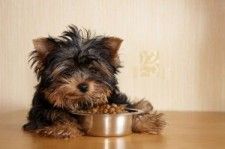Dogs can be opportunists when it comes to getting their paws on tasty treats, but Before we get into any further details trimming the nails of your dog is important and not all everyday food and drink are safe if they come into contact with them.
Top Quality Pet Food Container
Pet food storage containers such a superb choice for pet food. The container is fitted with four seal buckles ….Read more!
Learn which nine items are particularly dangerous to your dog.
1. ONIONS, GARLIC AND CHIVES
The onion family, whether dry, raw or cooked, is particularly toxic to dogs and can cause gastrointestinal irritation and red blood cell damage. Signs of illness are not always immediate and can occur up to a few days later.
2. CHOCOLATE
However enticing chocolate is for humans and dogs alike, chocolate is another poisonous food for dogs. Chocolate contains a stimulant called theobromine (dark chocolate has the highest content of this) which is toxic to dogs and can cause kidney failure.
3. MACADAMIA NUTS
Macadamia nuts contain a toxin that can affect your dog’s muscles and nervous system resulting in weakness, swollen limbs and panting.
4. CORN ON THE COB
Corn on the cob could potentially be fatal if eaten by your dog. Although the corn is digested by dogs, the cob can cause a blockage in your dog’s intestine.
5. AVOCADO
Avocados are another poisonous food for dogs. Avocado plants contain a substance called Persin which is in its leaves, fruit and seed and can cause vomiting and diarrhoea in dogs.
6. ARTIFICIAL SWEETENER (XYLITOL)
Our desire for sweet treats, chewing gum and drinks together with low-fat, diet and sugar-free products (including some peanut butters so always check the label before using this as a treat) are often laced with an artificial sweetener called Xylitol which causes an insulin release in our bodies. However, if your dog digests one of these sweetened foods they can go into hypoglycaemia which is linked to liver failure and blood clotting disorders.
7. ALCOHOL
Alcohol has a huge impact on dogs even in small doses. The drink not only causes intoxication as it does in humans, but it can lead to sickness, diarrhoea and even central nervous system damage.
8. COOKED BONES
Giving your dog a raw uncooked bone to chew on is great, but avoid cooked bones at all cost. These can easily splinter and in large quantities cause constipation or at worst, a perforation of the gut which can be fatal.
9. GRAPES AND RAISINS
Raisins are in many of the foods that we love to eat such as cakes, biscuits and cereals so it’s not just the fruit form we should be concerned with. The active ingredient which causes the toxin is unknown, however both grapes and raisins may cause severe liver damage and kidney failure.
WHAT SHOULD I DO IF MY DOG HAS EATEN ANY OF THESE?
If consumed, even small amounts of these items can be fatal so always act immediately and take your dog to the vets.
Human Food Safety for Dogs
Almonds: No, dogs shouldn’t eat almonds. Almonds may not necessarily be toxic to dogs like macadamia nuts are, but they can block the esophagus or even tear the windpipe if not chewed completely. Salted almonds are especially dangerous because they can increase water retention, which is potentially fatal to dogs prone to heart disease.
Bread: Yes, dogs can eat bread. Small amounts of plain bread (no spices and definitely no raisins) won’t hurt your dog, but it also won’t provide any health benefits either. It has no nutritional value and can really pack on the carbohydrates and calories, just like in people. Homemade breads are a better option than store-bought, as bread from the grocery store typically contains unnecessary preservatives, but it’s best to avoid it altogether.
Cashews: Yes, dogs can eat cashews. Cashews are OK for dogs, but only a few at a time. They’ve got calcium, magnesium, antioxidants, and proteins, but while these nuts contain less fat than others, too many can lead to weight gain and other fat-related conditions. A few cashews make a nice treat, but only if they’re unsalted.
Cheese: Yes, dogs can eat cheese in small to moderate quantities. As long as your dog isn’t lactose intolerant, which is rare, but still possible in canines, cheese can be a great treat. Many kinds of cheese can be high in fat, so go for lower-fat varieties like cottage cheese or mozzarella. Many dogs enjoy their very own dog-specific Himalayan dog chew made of dried cheese (but we don’t recommend sharing it).








*********ren1990@gmail.com
As a veterinarian, it's crucial to educate pet owners about foods harmful to dogs. Items like dogs for personal protection chocolate, grapes, onions, and xylitol can cause serious health issues, including toxicity and gastrointestinal problems. Avoiding these foods and ensuring a balanced canine diet promotes the health and well-being of our furry companions.